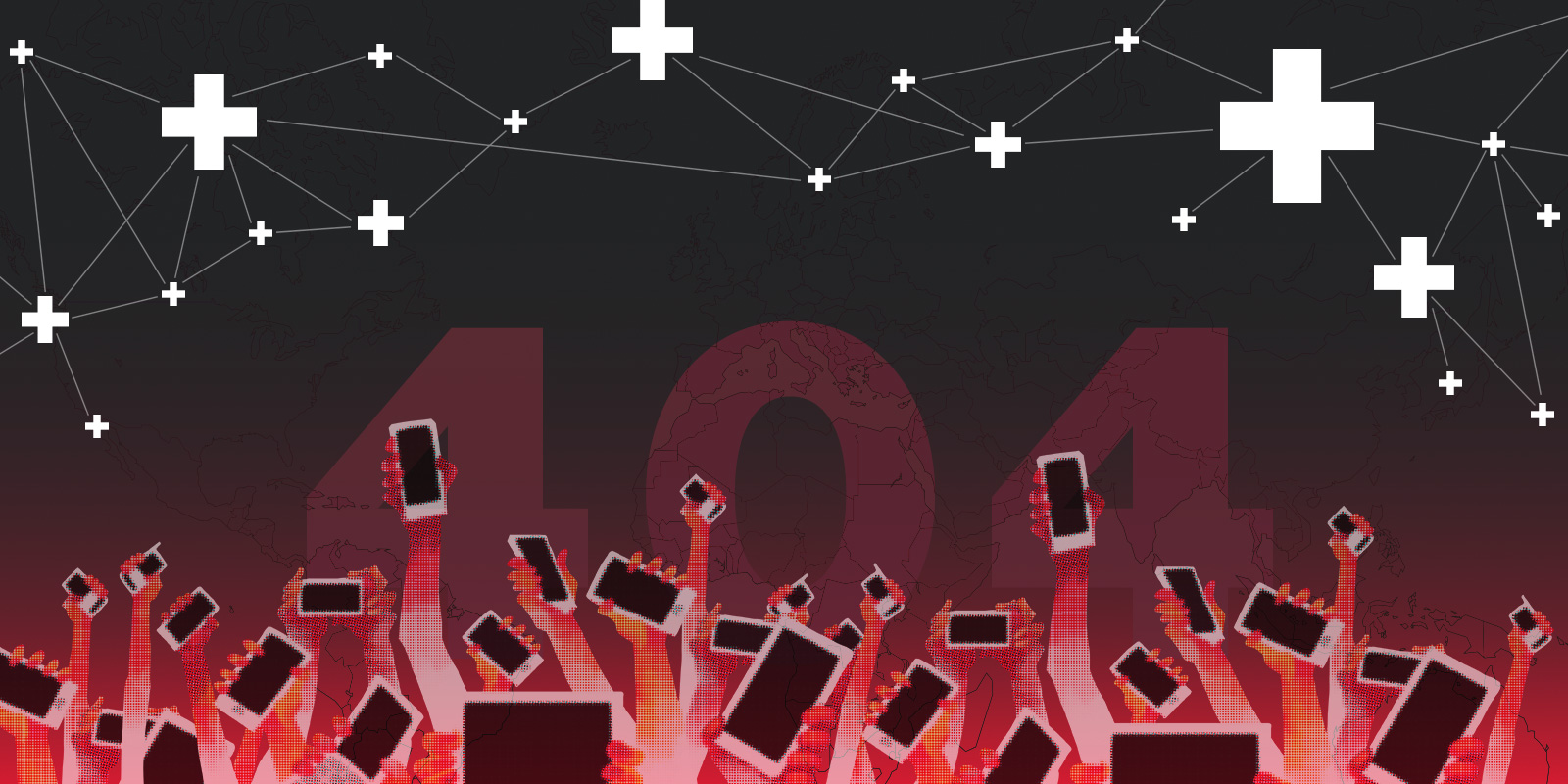Last week, the World Health Assembly, the World Health Organization’s (WHO) decision-making body, convened its 73rd annual meeting online due to the COVID-19 pandemic. The COVID-19 pandemic has cast the global spotlight on the WHO, the United Nations specialized agency responsible for international public health, to access vital information to save lives. With the world shifting more so online, including international organizations and the WHO’s very own operations, it is evident that the COVID-19 pandemic has amplified the need for access to universal, resilient, open, secure, and affordable access to information and communications technologies for all. In many parts of the world, where internet access is intentionally disrupted or shut down, informing oneself and engaging in online discourse about COVID-19 remains impossible. These restrictions, especially during this pandemic, which are usually imposed by governments will result in unprecedented consequences on the lives of the most vulnerable.
Today, May 26, 2020, the #KeepItOn coalition issued an open letter to the Deputy Director-General of the WHO, Dr. Zsuzsanna Jakab, calling on her to urge the governments of Bangladesh, India, Myanmar, and Pakistan to end the blatant and arbitrary internet shutdowns currently ongoing – even amid the COVID-19 pandemic.
The letter which was signed by Access Now together with 64 other international human rights advocacy groups called on the Deputy Director to:
- Urge the governments of India, Myanmar, Pakistan, Bangladesh and any others that shut down the internet to restore access to the internet in these regions to enable marginalized communities to enjoy their fundamental right of access to information, a core obligation of states and necessary to achieving the highest attainable standard of health.
- Publicly denounce the use of internet shutdowns as a hindrance to the WHO mission and an acute threat to public health, and encourage governments to recognize the important role of the internet in times of crises.
- Continue to prioritize efforts to increase access to reliable information and encourage active cooperation on the part of the public, by providing the latest news and information on COVID-19, in order to improve the health of all people.
Overall, intentional disruptions of internet access prevent the spread of health information, and represent an affront to the WHO Constitution. We appeal to the WHO to use the powers of its good office to urge states to #KeepItOn.
The #KeepItOn coalition – a global network that unites more than 210 organizations from across the world – works to end internet shutdowns around the world through advocacy, policy, research, and legal interventions. Access Now’s STOP Project, in collaboration with the coalition, has documented more than 213 internet shutdowns around the world in 2019. These shutdowns are increasingly targeting vulnerable groups such as minority groups and refugees.
Rohingya refugees in Cox’s Bazar refugee camps in Bangladesh recently confirmed their first few cases of COVID-19. The communities in these camps have, on numerous occasions, called on their host government to turn the internet on and allow them to obtain SIM cards to enable them to access information about the containment of the virus that could potentially save their lives. The Rohingya refugees that stayed home in Myanmar have also not been spared. The Burmese government continues to shut down the internet in Rakhine and Chin states even while the country records more cases every day.
This video from the Access Now’s Shutdown Story project highlights the impact of the internet shutdown on refugees at Cox’s Bazar refugee camps in Bangladesh.
In Jammu and Kashmir, citizens have been fighting to access the internet for almost a year now. With this pandemic, we have heard from numerous health care professionals that are struggling to download intensive care (ICU) guidelines and waiting long hours to access vital information that would help them save lives. People in the tribal districts in Pakistan have been without the internet for almost four years. The internet shutdown has disproportionately affected their ability to access information during this deadly pandemic.
Access to information during a global pandemic saves lives. Any effort that tries to throttle, stifle, and censor content and information during a pandemic will lead to unprecedented consequences on the lives of the most vulnerable. The International Commission of Jurists (ICJ), recently emphasized the critical importance of access to information, particularly public health information, as a means to upholding the right to health amid the pandemic and the ongoing Internet shutdowns in Myanmar.
Overall, we recognize that this unprecedented time poses many unique challenges for the WHO. However, to mitigate the impacts of this crisis in a manner that respects human rights, we call on the Deputy Director and the WHO for support in extending more universal, resilient, open, secure and affordable access to the internet, especially to the vulnerable and marginalized communities the WHO serves.
![]() To amplify the global call to end internet shutdowns, Access Now and Twitter jointly launched the Twemoji for #KeepItOn. Covering three Twitter hashtags across 21 languages, this visual aid allows anyone who speaks up on Twitter’s platform to draw attention to the issue with communication diversity. The campaign is part of a long term effort from the #KeepItOn coalition and the platform to give more visibility to the people and communities deeply harmed by internet shutdowns.
To amplify the global call to end internet shutdowns, Access Now and Twitter jointly launched the Twemoji for #KeepItOn. Covering three Twitter hashtags across 21 languages, this visual aid allows anyone who speaks up on Twitter’s platform to draw attention to the issue with communication diversity. The campaign is part of a long term effort from the #KeepItOn coalition and the platform to give more visibility to the people and communities deeply harmed by internet shutdowns.
